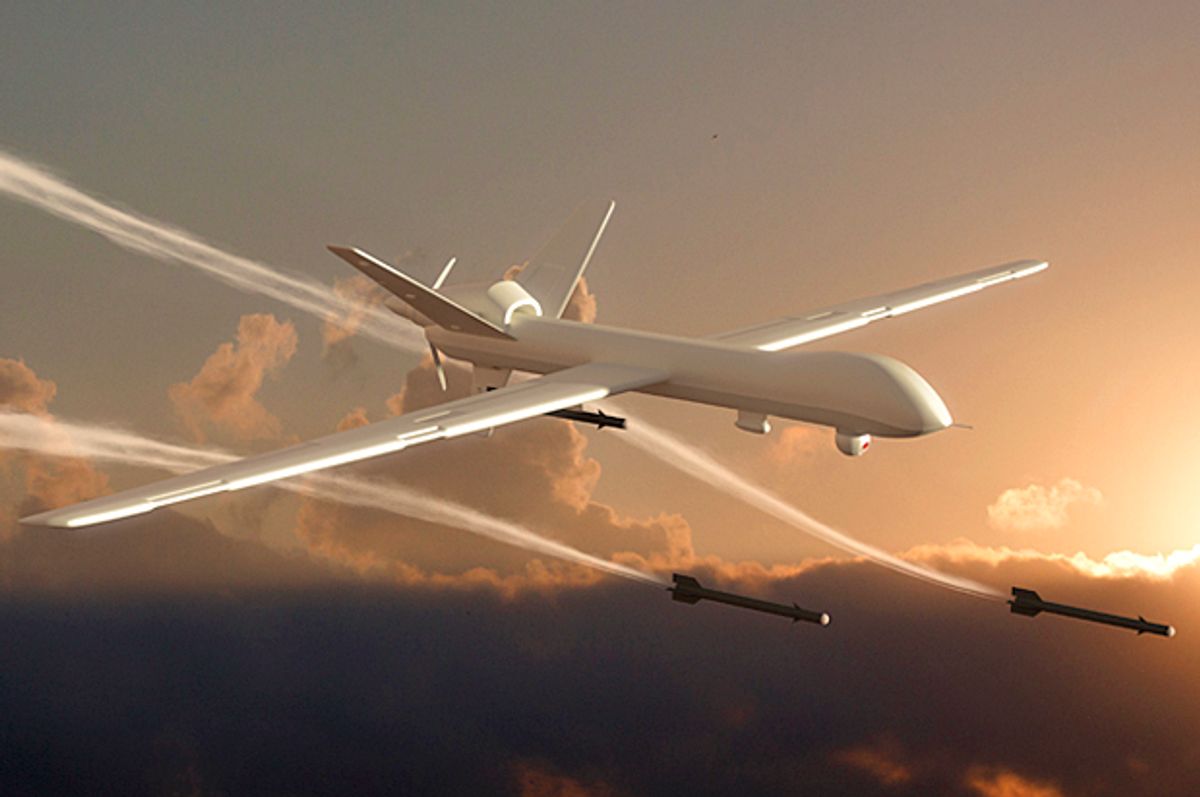On Monday, POLITICO reported that House Democrats plan to re-examine the sweeping mandate granted to the president by the 2001 Authorization for the Use of Military Force:
Key House Democrats plan to use their newfound power to force a debate about the war-making authority that Congress approved after 9/11 — after years of being stifled by the chamber's Republican leaders.
Democrats will still face a tough fight to impose greater oversight on the U.S. military deployments that have mushroomed during the past 17 years. But prospects will be much brighter for the lawmakers who have spent years pushing Congress to weigh in on the use of American forces in countries such as Afghanistan, Iraq, Syria, Libya, Somalia and most recently Yemen.
The 2001 AUMF, passed at the height of national terror after the Towers fell, kickstarted the global war on terror by conferring stunningly open-ended war powers on three successive presidents. The authorization granted the right to unilaterally direct military forces against anyone who "planned, authorized, committed or aided" the 9/11 attacks or "harbored such organizations or persons, in order to prevent any future acts of international terrorism against the United States by such nations, organizations or persons." In practice, that means the president can commit acts of war just about anywhere in the world, at any time, which is why CIA and military Predator drone strikes can launched anywhere.
Perhaps the most disturbing use of the AUMF to date has been the Pentagon sharing equipment and intelligence with Saudi Arabia in their horrific war with the Houthi rebels in Yemen, a conflict that has killed 85,000 children from famine alone. Last year, Congress passed a nonbinding resolution that the 2001 AUMF does not authorize action in Yemen — but short of actually amending the authorization, nothing is likely to change.
"I voted for [the AUMF], it was necessary at the time, but I never would've imagined that any president could use it as sort of a get-out-of-jail-free card. A card to do whatever you want to do," said Rep. Eliot Engel (D-NY), who is slated to chair the House Foreign Affairs Committee. Even some Republicans are expressing support for curtailing the AUMF, with Rep. Mike Gallagher (R-WI), a Marine veteran, saying the authorization was "not to sort of go all around the world to kill people that weren’t born on 9/11 or to conduct strikes against facilities controlled by a regime in the Middle East."
Though the task of reigning in the post-9/11 authoritarian war state will doubtless be a daunting task, Congress has made progress in recent years. In 2015, the USA FREEDOM Act was passed, partially curtailing the National Security Agency's Powers powers under the infamous Patriot Act to collect telecommunication metadata in bulk from American citizens.
America is long overdue for a serious discussion about the consequences of endless war and presidential powers — and Democrats in Congress are ready to force the nation to have it.


Shares